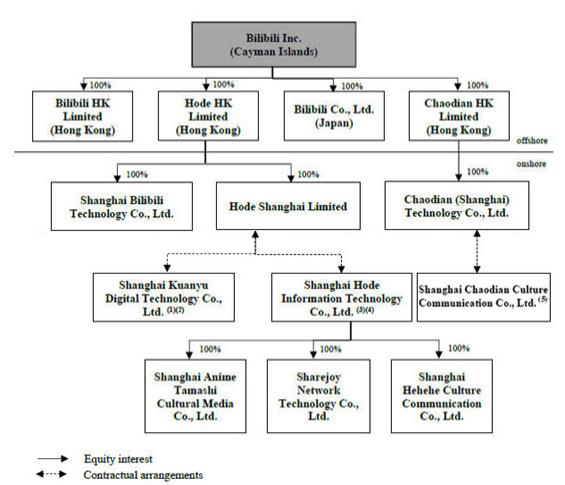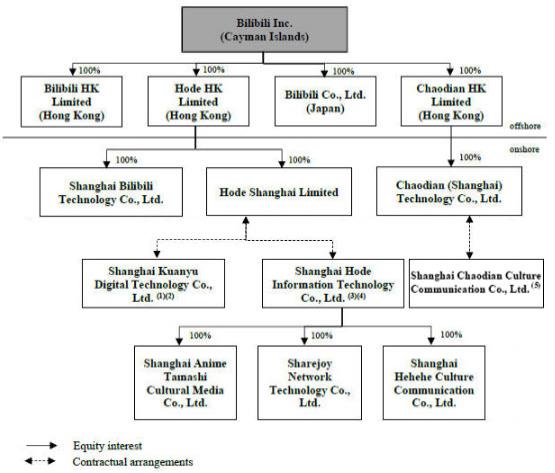The Administrative Measures on Internet Information Services, which was promulgated by the State Council on September 25, 2000, and amended on January 8, 2011, set out guidelines on the provision of internet information services. According to these measures, the internet information services is classified into commercial internet information services and noncommercial internet information services; a commercial operator of internet content provision services must obtain an ICP License for the provision of internet information services from the appropriate telecommunications authorities. The Administrative Measures for Telecommunications Businesses Operating Permits, which was promulgated by the Ministry of Industry and Information Technology on July 3, 2017, and became effective on September 1, 2017, further regulates the telecommunications business permits. On January 8, 2021, the Cyberspace Administration of China promulgated the Internet Information Services Measures (Revised Draft for Comments), which sets forth detailed rules on the internet information service activities. As of the date of this annual report, the draft has not been formally adopted.
Regulations Related to Internet Cultural Activities
On February 17, 2011, the Ministry of Culture of the PRC promulgated the Provisional Measures on Administration of Internet Culture, effective on April 1, 2011, and amended on December 15, 2017, to regulate entities that engage in activities related to internet cultural products. “Internet cultural products” are classified as cultural products developed, published and disseminated via internet which mainly include: (i) online cultural products particularly developed for publishing via internet, such as, among other things, online music and entertainment, online games and online shows and programs, online performance, online artwork and online anime and cartoons; and (ii) online cultural products converted from music and entertainment, games, shows and programs, performance, artwork, anime and cartoons using certain technical means to be disseminated via internet. Pursuant to these regulations, entities are required to obtain the Online Culture Operating Permits from the applicable provincial level counterpart of the Ministry of Culture and Tourism if they intend to commercially engage in any of the following types of activities: (i) production, duplication, import, release or broadcasting of online cultural products; (ii) publishing of online cultural products on the internet or transmission over information network, such as internet or mobile telecommunication network, to end user’s devices via computers, fixed-line or mobile phones, radios, television sets or online games consoles and internet cafes for the purpose of browsing, reading, reviewing, using or downloading such products by users; or (iii) exhibitions or contests related to online cultural products. If the content of audio-visual programs transmitted by the internet audio-visual program service provider on the internet violated Provisional Measures on Administration of Internet Culture, operating internet culture entities shall subject to punishment which may include an order to rectify, confiscation of illegal proceeds and a fine of RMB10,000 to RMB30,000, if such circumstances are severe judged by the competent authority, it shall be subject to punishment which may include order to cease and revocation of license, if such violations constitute crime, criminal investigations or penalties may be imposed.
On August 12, 2013, the Ministry of Culture of the PRC issued the Administrative Measures for Content Self-Review by Internet Culture Business Entities, requiring the entities that engage in the internet cultural business to review the content of products and services to be provided before providing such content and services to the public. These entities shall establish content management system, set up departments for content management and employ proper personnel to ensure the legality of content. The content management system of an internet cultural business entity is required to specify the responsibilities, standards and processes for content review as well as accountability measures, and is required be filed with the provincial level counterpart of the Ministry of Culture and Tourism.
Regulations Related to Online Transmission of Audio-Visual Programs
According to the Administrative Regulations on Internet Audio-Visual Program Service, or the Audio-Visual Regulations, promulgated by State Administration of Radio, Film and Television of the PRC and the Ministry of Information Industry of the PRC, the predecessor of the Ministry of Industry and Information Technology, on December 20, 2007, and became effective on January 31, 2008, as amended on August 28, 2015, and became effective on the same day, internet audio-visual program service refers to the activities of making, editing and integrating audio-visual programs, providing them to the general public via internet, and providing such services to other people by uploading. An internet audio-visual program service provider shall obtain a License for Online Transmission of Audio-Visual Programs issued by the National Radio and Television Administration or complete certain record-filing procedures with the National Radio and Television Administration.
Pursuant to the Audio-Visual Regulations, providers of internet audio-visual program services are generally required to be either state-owned or state-controlled. According to the Official Answers to Press Questions Regarding the Internet Audio-Visual Program Regulations published on the State Administration of Radio, Film and Television of the PRC’s website on February 3, 2008, the State Administration of Radio, Film and Television of the PRC and Ministry of Information Industry of the PRC clarified that the providers of internet audio-visual program services who had legally engaged in such services prior to the adoption of the Audio-visual Regulations shall be eligible to re-register their businesses and continue their operations of internet audio-visual program services so long as those providers have not been in violation of the laws and regulations. This exemption will not be granted to internet audio-visual program service providers established after the adoption of the Audio-Visual Regulations. These policies have later been reflected in the Notice on Relevant Issues Concerning Application and Approval of License for Online Transmission of Audio-visual Programs, issued by State Administration of Radio, Film and Television of the PRC on April 8, 2008, and amended on August 28, 2015.
92


 ..” In addition, we had submitted approximately 2,400 additional patent applications and 321 trademark applications.
..” In addition, we had submitted approximately 2,400 additional patent applications and 321 trademark applications.